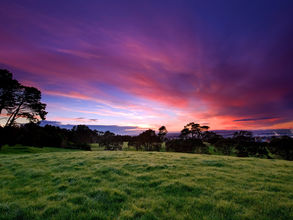(单词翻译:单击)
听力文本
This is Scientific American — 60-Second Science. I'm Christopher Intagliata.
What sort of scenery do you find most appealing? Researchers in the U.K. asked volunteers that question, doing an online photo-rating game, and the result was sort of what you'd expect. "Beautiful mountains, abundant greenery, beautiful water features like lakes and oceans." Chanuki Seresinhe, a data scientist at the Warwick Business School.
She says the more surprising finding was that human-built structures—churches and towers and cottages—could enhance the perception of the beauty of a scene. And big expanses of green grass—like athletic fields—didn't actually rate that highly.
What they did next is where the data science comes in: They fed a computer 160,000 photographs rated through the online game. And they taught the machine to break each image into the scenic elements it contained. Snowy mountains, waterfalls, crosswalks and construction sites.
Then they presented the computer with a challenge: they asked it to rate the scenic beauty of other photos it had never seen before. And it actually did pretty well at estimating the average crowd-sourced consensus of beauty. The study is in the journal Royal Society Open Science.

As smart as it is, the scenery-loving computer probably won't be putting tour guides out of business. "Actually I think it can help tour guides. 'Cause what's interesting is that I think it can actually maybe uncover places that we didn't necessarily know about that might have not been that popular."
And Seresinhe says the system might also help city planners more objectively evaluate the scenic beauty of new urban developments. "We can also now look at how to design cities that people find more beautiful, and people might want to actually spend more time in."
Assuming, that is, the computer doesn't become truly intelligent...and, like humans, starts spitting out subjective opinions entirely its own.
Thanks for listening for Scientific American — 60-Second Science Science. I'm Christopher Intagliata.
参考译文
这里是科学美国人——60秒科学。我是克里斯托弗·因塔利亚塔。
你觉得什么样的风景最吸引人?英国研究人员通过在线照片评估游戏向志愿者提出了这个问题,结果可能跟你想的一样。“秀美的山川,繁茂的植被,湖泊和海洋等美丽的水景。”华威商学院的数据科学家查努基·塞瑞辛说道。
她说,更令人惊讶的发现是,教堂、塔楼和农舍等人造建筑可以增加人们对美景的感知。而像运动场那样的大面积绿草,实际上得到的评价并没有很高。
接下来的研究需要数据科学的帮助:他们将在线游戏评过分的16万张照片输入计算机。然后教这台机器分析出每张图片所包含的风景元素。比如雪山、瀑布、人行道和建筑工地等。
然后,他们向计算机提出了一个挑战:他们要求计算机对其从未分析过的风景图片进行评估。在评估大众普遍认同的美景时,计算机做得相当不错。这项研究结果发表在《英国皇家学会·开放科学》期刊上。
不过,虽然计算机如此聪明,但是喜爱美景的它可能并不会让导游失业。“实际上,我认为计算机可以帮助导游。因为有趣的是,我想它也许可以发现我们不一定知道或不太知名的美景。”
塞瑞辛表示,该系统可能还可以帮助城市规划者更客观地评价新城市开发的美景。“现在我们还可以研究如何进行城市规划,让人们认为这座城市很漂亮,愿意花更多时间停留。”
也就是说,假设计算机没有真的变聪明,而是像人类一样,开始吐露完全属于自己的主观意见。
谢谢大家收听科学美国人——60秒科学。我是克里斯托弗·因塔利亚塔。
译文为可可英语翻译,未经授权请勿转载!
重点讲解
重点讲解:
1. sort of 有几分;近似;有那么点儿;
例句:I sort of made my own happiness.
可以这么说,是我自己创造了自己的幸福。
2. come in (在某件事中)起作用,发挥作用;
例句:Finally, he could do no more, which is where Jacques came in.
最后,他再也无能为力了,这也正是雅克发挥作用的时候。
3. put out of business 停业;破产;
例句:This is going to put them out of business.
这将会使他们破产。
4. spit out 吐出;
例句:Finally he decided to spit out what was really on his mind.
最后,他还是决定倾吐他真正想问的话。


